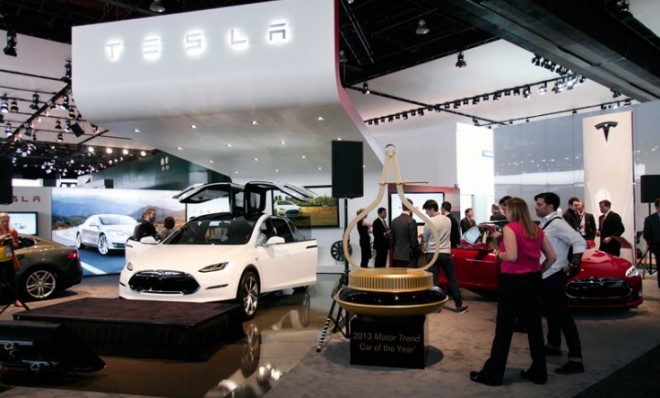3 level-headed takeaways from the Tesla-New York Times kerfuffle
The back-and-forth has been emotional and bizarre. But reasonable people can still learn lessons from this strange affair

A free daily email with the biggest news stories of the day – and the best features from TheWeek.com
You are now subscribed
Your newsletter sign-up was successful
One of the weeks' biggest internet brouhahas centered on New York Times reporter John M. Broder, who test-drove a new electric Tesla Model S that ran out of power on a rather chilly trip from Washington, D.C. to Boston. Elon Musk, the forward-thinking billionaire behind the car company, alleges that The Times report was an outright lie, and released the car's data logs. Musk says the data demonstrates that the reviewer sabotaged his trip by failing to charge the Model S properly, neglecting to drive at correct cruising speeds, and intentionally draining the car's battery by driving around in aimlessly in a parking lot.
The Times fired back, this time with Broder dissecting Musk's assertions line-by-line. (If you really must, you can read all the nitty-gritty details here.)
The back-and-forth has been bizarre, to say the least. So what can a reasonable person learn from this whole kerfuffle? Here are three lessons:
The Week
Escape your echo chamber. Get the facts behind the news, plus analysis from multiple perspectives.

Sign up for The Week's Free Newsletters
From our morning news briefing to a weekly Good News Newsletter, get the best of The Week delivered directly to your inbox.
From our morning news briefing to a weekly Good News Newsletter, get the best of The Week delivered directly to your inbox.
1. The New York Times probably doesn't have an anti-Tesla agenda
Musk, as the guy behind PayPal, SpaceX, and Tesla, is something of a hero in the tech world. And because Tesla is a glitzy electric car company with aspirations to lower carbon emissions and usher in a new era of clean, functional energy, some of Musk's supporters are accusing The Times (or Broder, at least) of being in the pocket of Big Oil, an assertion that is totally unfounded. The allegations don't really pass the smell test, either. Will Oremus at Slate sums it up best: "Perhaps the most convincing statistic in Broder's rebuttal is the number of times he called Tesla personnel throughout the trip to ask for help getting the car to its destination: 'About a dozen,' he says. That's hardly what you'd expect from a man 'determined' to get the car to die so he could embarrass Musk and Co. in his review."
2. Driving an electric car requires careful planning
"Like many such controversies, common ground turns out to be easier to find than you might think," says John Voelcker at Green Car Reports. "It's a fact that electric-car range falls in colder temperatures." Broder chose to drive from DC to Boston during one of the coldest months of the year, and Tesla should have considered the implications of such a test a little more thoroughly beforehand. Broder, for his part, surely could have spent more time researching exactly how the car's elaborate charging system worked before setting off on his trip. And keep in mind: A reviewer from CNN was able to replicate the same trip — albeit in different weather conditions — without any problems. The big takeaway: Driving electric cars, especially in cold weather and with charging stations few and far between, takes some advance planning.
A free daily email with the biggest news stories of the day – and the best features from TheWeek.com
3. Tesla will probably end up the big winner, in spite of it all
Yes, Broder's initial review was brutal. And despite Musk's claims, Broder's report does seem to be an honest account of a reasonable driver running into a real set of problems. Nonetheless, the controversy is drumming up all sorts of buzz for Tesla's Model S, and getting the electric car in the minds of people who had otherwise never heard of it. And inevitably, it will get easier to drive the Model S. More Supercharger stations will be built, battery technology will undoubtedly get better, and early adopters will still open their pocketbooks to get their hands on a shiny new Tesla. Here, at least, the old adage holds true: Any publicity is good publicity.
-
 How the FCC’s ‘equal time’ rule works
How the FCC’s ‘equal time’ rule worksIn the Spotlight The law is at the heart of the Colbert-CBS conflict
-
 What is the endgame in the DHS shutdown?
What is the endgame in the DHS shutdown?Today’s Big Question Democrats want to rein in ICE’s immigration crackdown
-
 ‘Poor time management isn’t just an inconvenience’
‘Poor time management isn’t just an inconvenience’Instant Opinion Opinion, comment and editorials of the day